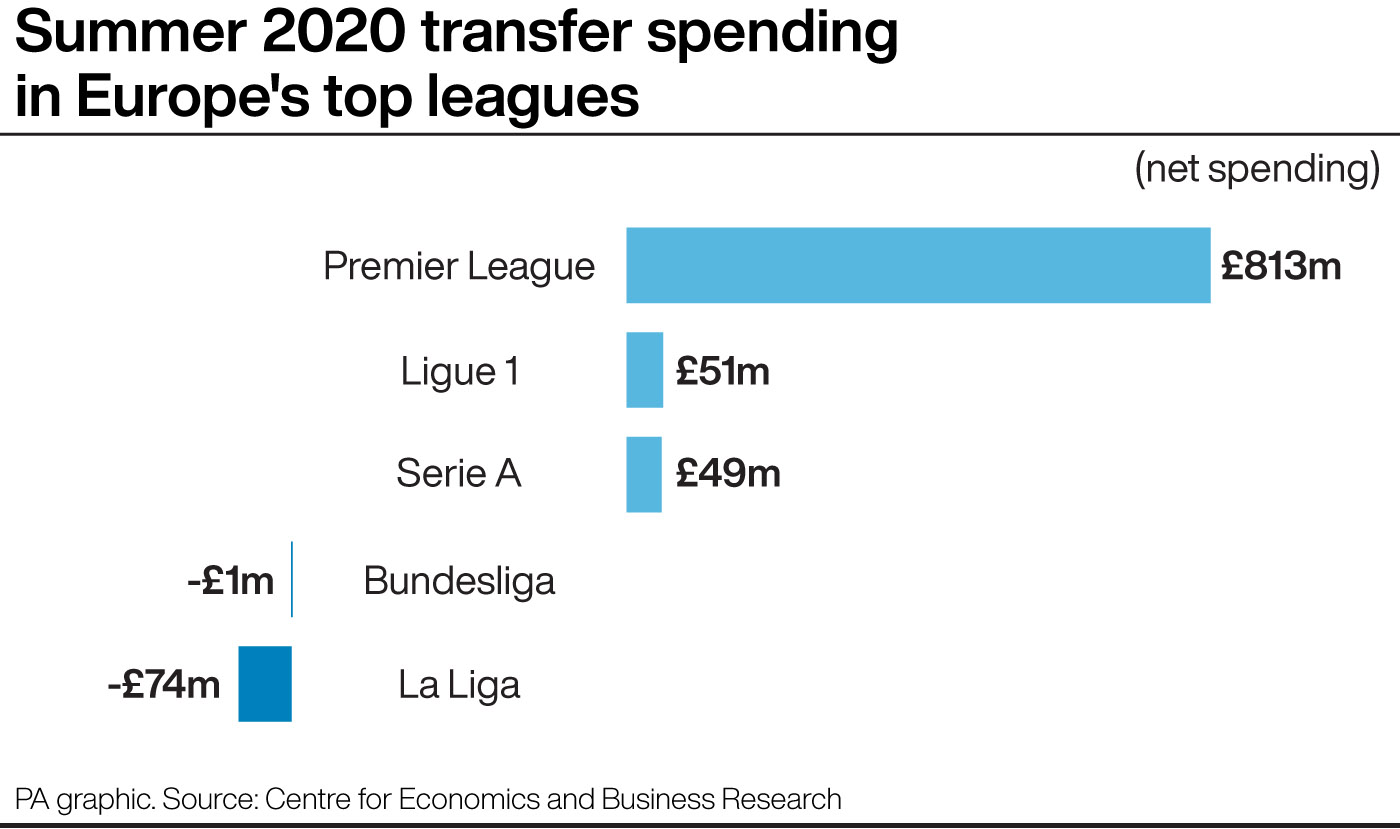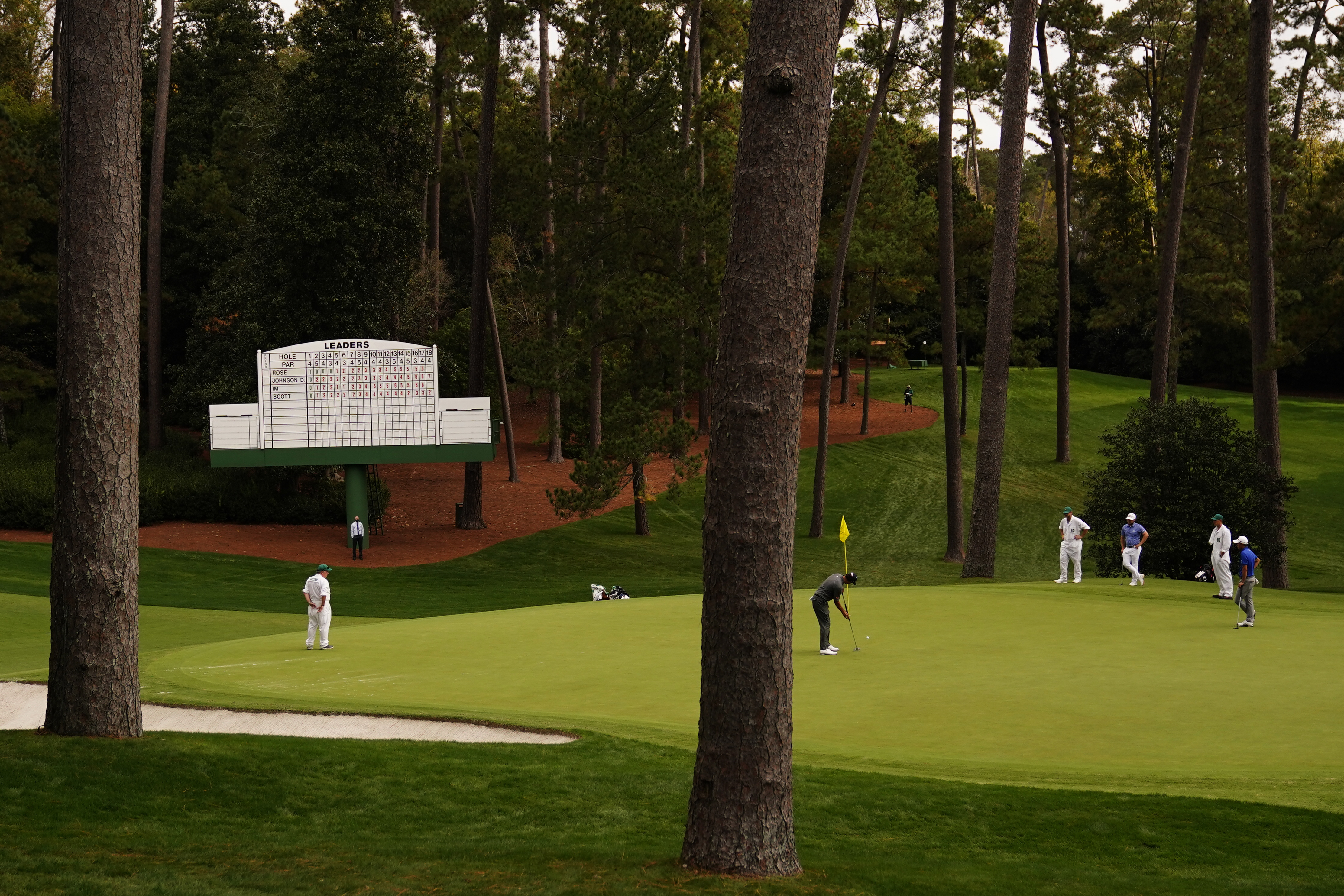Premier League clubs spend over £1bn despite coronavirus pandemic

Premier League clubs made light of the financial implications of the coronavirus pandemic by spending over £1billion in this summer’s transfer window to once more showcase the league’s financial might.
With matchday income down due to the lack of spectators, clubs across Europe cut their cloth accordingly – but Arsenal and Manchester United’s respective deadline-day moves for Thomas Partey and Alex Telles capped off a typical English summer of spending.
The final total of £1.24bn ranks third in Premier League history for a summer window and represents, according a report by the Centre for Economics and Business Research (Cebr), a net spend of £813million.
The latter figure is an increase of over £180m on last summer and comes despite the net spend in Europe’s so-called ‘big five’ leagues falling by nearly a third from £1.2bn to £838m.
“(Gross) transfer spending is down by approximately half this summer compared to previous summer transfer windows across Europe’s top five leagues,” Cebr economist Sam Miley told the PA news agency.
“There is some slight subdued level of spending (in the Premier League) but certainly compared to the likes of Germany and Spain, the levels of spending have largely been unobstructed by Covid, it seems.
“One suggestion for that is ultimately that of greater spending power, which stems from the channels of revenue on which clubs are dependent.
Get FourFourTwo Newsletter
The best features, fun and footballing quizzes, straight to your inbox every week.

“We see significant levels of revenue stemming from the likes of broadcast deals and sponsorship, meaning that Premier League clubs – particularly at the higher end of the table – are less dependent on the revenues from match-going fans.
“This is what sets the Premier League apart from counterparts across Europe, where sponsorship and broadcast deals are less significant proportions of their revenue and ticket sales are more significant.
“With Covid implementing restrictions on match-going fans, those sources of revenue are drastically curtailed for clubs on the continent.”
Chelsea led the English spending by signing players including Timo Werner, Kai Havertz and Ben Chilwell, while Manchester City reinforced their defence with Nathan Ake and Ruben Dias and United completed five signings on deadline day.

Only Serie A clubs, with a total of £686m, paid out even a third as much in fees as the Premier League – and the Italian top flight recouped all but £49m of that figure in player sales.
Ligue 1 clubs spent £390m gross and £51m net, while LaLiga and the Bundesliga made trading profits of £74m and £1m respectively.
Miley added: “A lot of those leagues would typically spend money on players from the Premier League, and as such the level of exports has been significantly more subdued and that plays into a wider transfer deficit.”
The report was commissioned by Football Index, whose co-founder Mike Bohan sees no prospect of a let-up in future windows despite sounding a note of caution.
Speaking before Monday night’s deadline, Bohan said: “The Premier League is still set to spend over £1billion on transfers, and I think the critical thing this report finds is their transfer deficit is actually going to increase on last summer.
🚨POLL: What has been the best transfer on #DeadlineDay & why? pic.twitter.com/Ot1FKO5vTB— FIFA.com (@FIFAcom) October 5, 2020
“This level of spending is something of a self-perpetuating problem – for finishing bottom last season, Norwich got £87m in TV money so every club is desperate to not fall out of the league, and their safest bet of staying in is to invest in the playing staff.
“All of these clubs have got three main sources of income. All three of those will come under downward pressure.
“The sponsorship fees – behind every shirt sponsor is a real business, they have to make decisions about managing their own finances. The TV deals will come under more pressure given the wider economic uncertainty and people’s appetite to spend on pay TV.
“But I think the gate receipts is the one that’s going to be very difficult, even for the Premier League clubs, to bridge that gap.”
Despite the big spending in England, former Arsenal chief executive Ivan Gazidis felt a greater level of financial responsibility had helped lessen the impact of Covid-19, which he said would otherwise have been “crippling”.
“We can be glad that the football world embraced more financial discipline seven or eight years ago and really put that as a priority,” Gazidis, now at AC Milan, told LeadersWeek.direct.
“Had we faced Covid and this crisis in the same financial situation that football was in seven or eight years ago, the crisis would have been even more dramatic – and it’s been dramatic enough. But it would have really been completely crippling.”
The Cebr report was commissioned by Football Index, the world’s first football stock market. To find out more go to: https://www.footballindex.co.uk/
